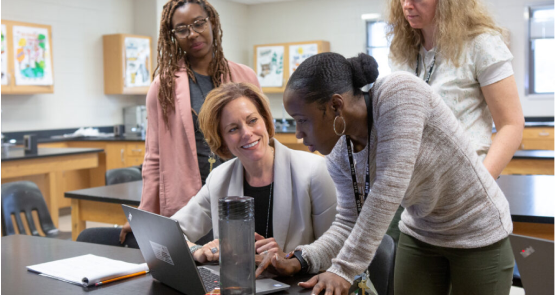Contact: Kent Fischer, [email protected]
WASHINGTON, D.C. – Students aren’t acquiring the skills to fight fake news, and more than a third of 8th graders don’t learn how to identify reliable news and websites, according to a new study by the Reboot Foundation.
That’s despite the fact that programs aimed at helping people distinguish fake news from real news are effective, though not all of them work equally well.
As part of the project, researchers studied the effects of participants who watched a short educational video or read an article outlining how to go about determining if a news article is legitimate. They found that after these short interventions participants could identify fake news at higher rates than before the intervention.
On the other hand, a video game program that asked people to moderate a social media news feed and identify and remove fake news was not effective in helping people separate real information from false information.
Fake news is typically disinformation that involves a mix of false claims and real events crafted to appeal to a specific audience. In the 2016 U.S. presidential election, false stories disseminated by Russia were widespread on social media and earned the name “fake news.”
“Simple interventions can help people become more savvy news consumers, and we need to do more to provide people with the skills to discern actual news from fake news,” said the study’s lead author, Helen Lee Bouygues.
Media literacy education is critical to addressing the problem, but students are not learning these skills in schools. According to the new report, more than a third of U.S. middle school students report “rarely” or “never” learning how to judge the reliability of sources.
Learning how to cite and credit sources is another necessary media literacy skill, but fewer than half of U.S. middle school students report spending a lot of time learning how to properly credit others for their ideas.
About 44 percent of eighth-grade students report learning this skill “often” in the classroom, and over a fifth of students report “rarely” or “never” learning this skill.
State and federal agencies should do more to fund media literacy and should support public and local broadcasting, as well as collaborate with technology companies to stem the spread of fake news. Technology companies can be more vigilant in identifying, marginalizing, and even removing fake news content.
More than 2,000 participants took part in the Reboot Foundation experimental study. For the analysis of student views of media literacy education, the research team relied on survey data from the 2018 National Assessment of Educational Progress.



